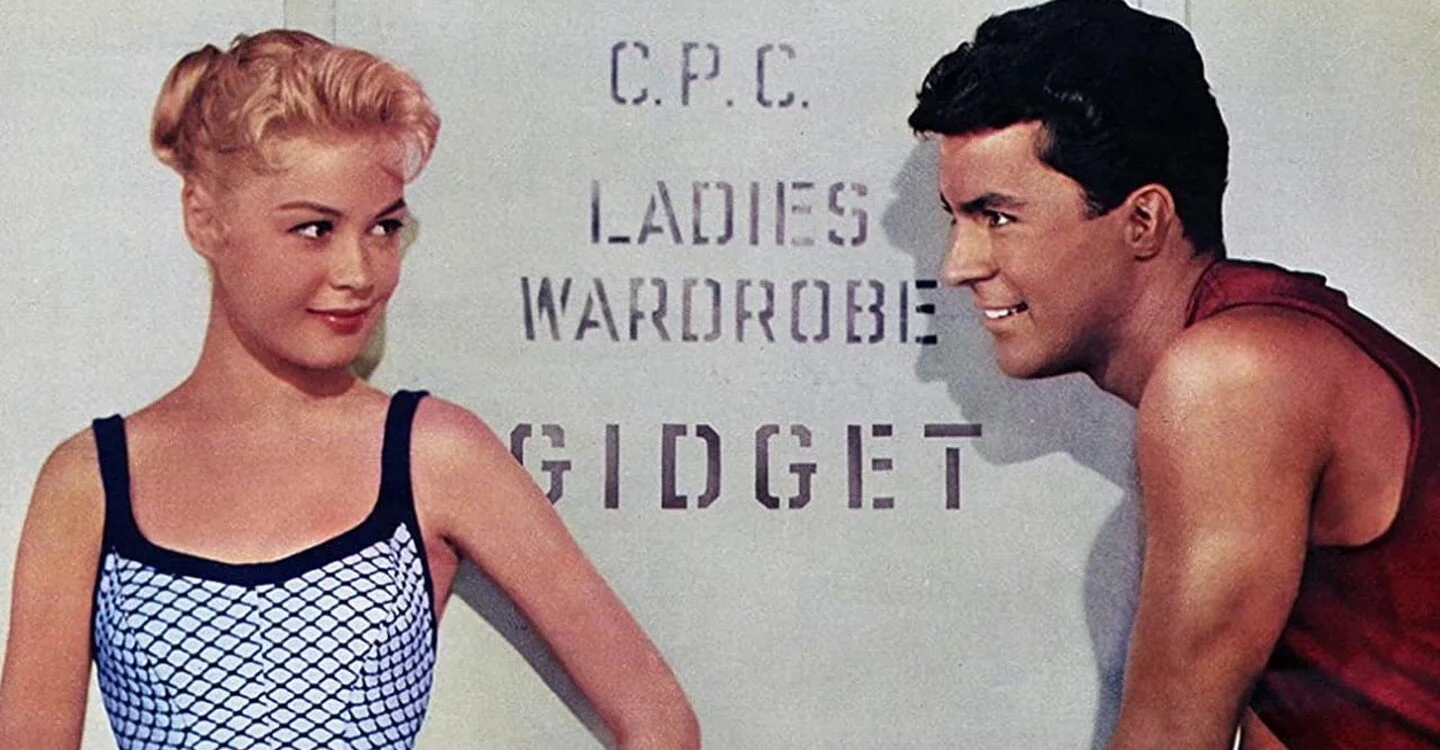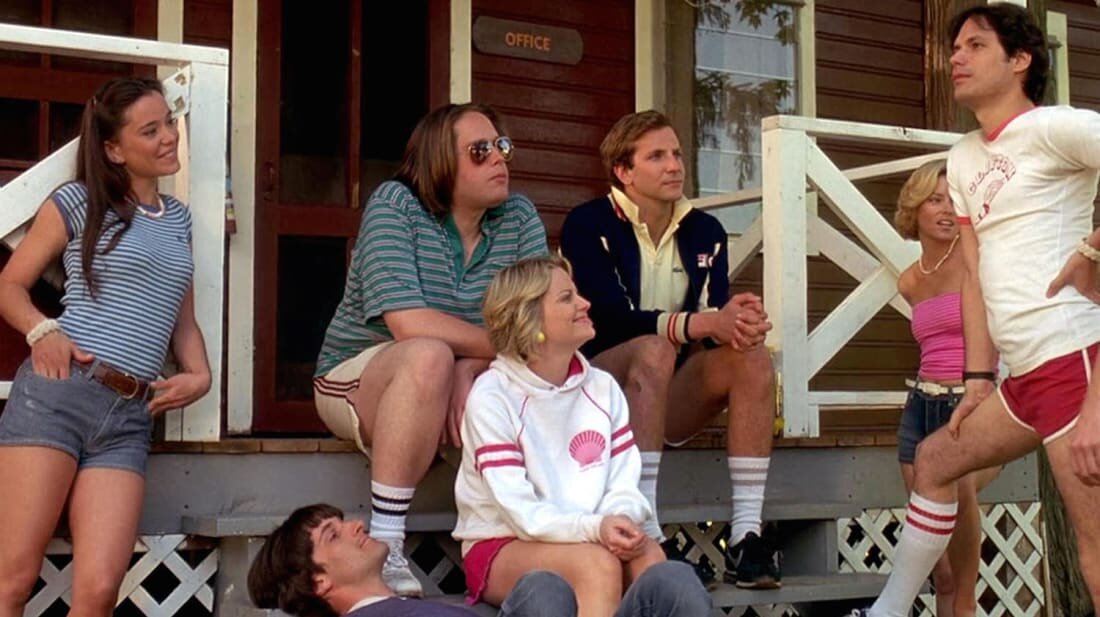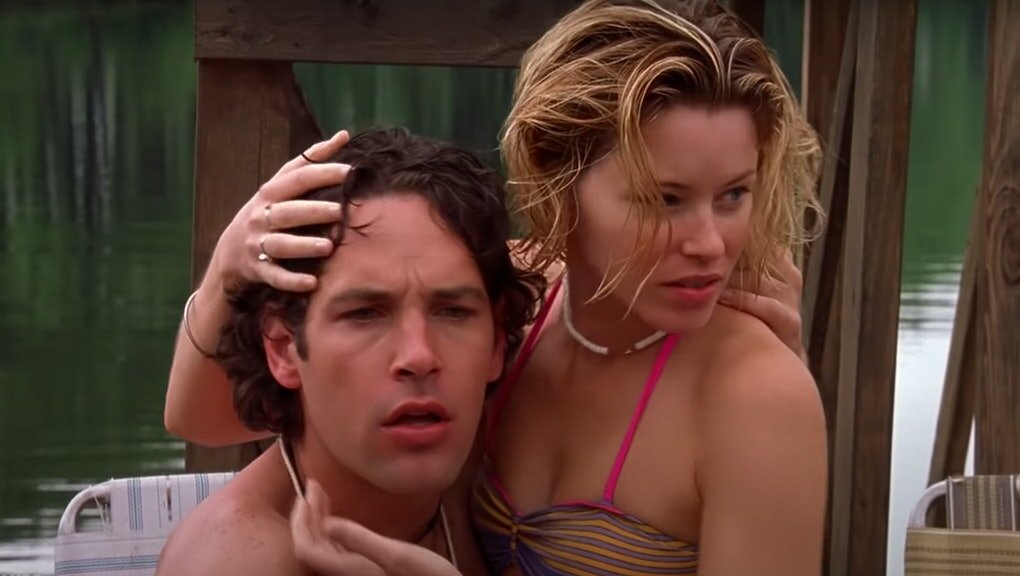You Can’t Sit With Us: Wet Hot Teen Beach Party
What’s it like to be a teenager during the summer? For there to be “adults” but not actual adult supervision? Those were the questions I was asking when I watched (and re-watched) the movies for this month’s column. I knew that I wanted to dive into the types of teen films that don’t take place in the hallowed halls of a high school. Instead, they usually take place at a camp, on a beach, or otherwise on vacation. There’s certainly a lot of overlap with teen sex comedies and horror films under this umbrella, but I’m covering both of those in separate pieces.
So, when I was looking into the history of teen films, and the idea of “teenagerdom” as a whole, I kept finding myself squarely in the 1950s. A lot of people think it begins with James Dean and all the films he made before his tragic death in 1955. I think that’s a fair assessment, but I’m not so sure I consider Rebel Without a Cause to be a particularly teenage film, so much as it's a drama with a teenage protagonist. (Very literary fiction with young characters versus YA fiction.)
And that’s not to say that if you made that movie now, exactly as it is, that it wouldn’t be considered a teen film. There’s certainly an argument to be made that many would see it as modern teen drama. I just think, as a culture, that we needed to see films like Gidget first, in order to be able to circle back to viewing teenagers as people with complex emotions and internal lives.
Which actually brings us, quite nicely, to Gidget. Based on the novel of the same name by Frederick Kohner, it’s the story of Francine “Gidget” Lawrence (Sandra Dee) who has no interest in boys, despite all her friends’ cajoling. No, she’d much rather swim than lay on the beach and cut a sexy picture for the surfer guys. When Francine nearly drowns, though, she gets saved by one of the surfers and decides she wants to learn how to ride the waves. So, she spends her summer before senior year hanging ten (I’m sorry, but it’s a 50s flick and it’s illegal to not to make stupid dad jokes) with the surfers. Soon she starts falling head over heels for Moondoggie (James Darren), the guy who saved her life.
Gidget is considered by many to be the first of the “teen beach” films, with a few sequels and imitators across all the major studios. And it’s very likely that the genre of teen film it slots into eventually became the spring break sex comedies that we all lived through during the 90s and early 2000s. It certainly feels like a direct line, considering how much sex (without consumation) plays a big role in the third act of the film.
This film takes some absolutely wild turns that I truly don’t think I had any way of processing. I simply had to go to Wikipedia to try and suss out how old everybody had been when the flick came out. And, gentle reader, it was a true nightmare! Sandra Dee was appropriately aged at 17. James Darren, her main love interest, was 22. Which isn't all that bad (though still not great!), when compared to the age of Cliff Robertson. He played Big Kahuna and Gidget tries to make Moondoggie jealous by pretending to be interested in him. He was fully 35 years old and… I hate it here!
I will say, though, that one of the joys of watching Gidget, other than now having a real love and appreciation for Sandra Dee, was being able to talk to my mom about it. She grew up directly in an era where this image of Sandra Dee was pervasive (she was in five films alone the year Gidget came out). It was fun to talk about both the problematic elements of the film and about the teenage social construction my mom lived in, with Dee setting an example for light and proper teenage femininity. Plus, I felt like Peter Parker in Civil War asking if everybody had seen Empire. “Gidget? Why did you watch Gidget?” was the answer when I asked her about the film.
And the long and short of it was that I watched Gidget, and wanted to talk about it, because after finally seeing it, there’s no doubt in my mind that it’s vital to the teenage film canon. It’s the pinnacle of what we imagine as 50’s teen culture, from the outfits and hair to the way everybody speaks. It’s this perfect encapsulation.
But, especially in talking to my mom about it, Gidget also represents what the adults, who had all the capital and power to make movies, thought teens were like to some degree. Which I think is important to consider, since teenagers didn’t have the capacity to create their own high caliber, scripted media. At least, not for a while, and not with the same frequency as adults.
The other very popular location for teenagers to be their messy selves, without actual adult supervision, is camp! Now, I never went to summer camp myself (it’s expensive, y’all!), but I did get to do some sleepaway weekend trips to a camp that my cousin used to go to, up in Washington. Also, my brother and my sister went to walkabout camp for a while when I was younger. Which might be why my sister’s favorite film for a long, long time was Wet Hot American Summer.
Camp movies don’t really exist anymore, unless they’re period pieces (which this film also falls into the category of). But, even historical, they’re usually either films for a younger, not quite teen, audience or they’re teen horror flicks. Both of which are fine, but aren’t quite the type of film that Wet Hot is aiming to replicate.
Wet Hot American Summer premiered at Sundance in 2001 and it bombed at the box office when it was released more widely. Despite that, however, the film became a bonafide cult classic. It got not one, but two, spin-off series on Netflix and is pretty beloved as an absurdist satire comedy.
The film, set in the summer of 1981, is about the teenage camp counselors (and their camp director) on the last day of camp. It starts off perfectly normal with camp activities like swimming in the lake, taking a group of campers down some rapids, and ending the whole summer with a talent show. It quickly leans into the absurd comedy of writer/director David Wain and writer/star Michael Showalter, however, as the counselors take a trip into town and do a whole drug trip sequence that is only an hour of their day, the camp cook talks to a can of vegetables, and the indoor kids try to stop a piece of NASA’s Skylab from falling on the camp.
So, why do I think that this satirical teen camp film that stars 30-somethings as teenage camp counselors is the perfect representation of the type of flick I’m trying to talk about? Well, the answer is actually because of the choice to have 30-somethings playing teenage camp counselors. First, it’s absolutely hilarious, made even funnier during the prequel series. Second, it actually feeds into my thoughts on why people (i.e. adults) make teen films in the first place. Either you’re making it from the POV of being an adult looking at teens now, or you’re an adult trying to relive your teenagerhood. And Wet Hot American Summer falls flatly in the latter category… kind of. Which is the interesting part.
Meaning it to be this way or not, Wet Hot American Summer is this adult take on a kid’s view of teenage counselors at a summer camp. Since it’s set squarely in 1981, Wain and Showalter were both pre-teens when the film was set. They would have been the kids at the camp, not the counselors. As adults, they’re able to conceptualize what being a camp counselor in the early 80s would have been like, having seen the kid’s side of that world. All of which is so fascinating to me because it’s this perfect amalgamation of teen and pre-teen camp life in the 80s, while also having the absurdist humor of 30-somethings in the early aughts. And while it’s not a major factor of the film, itself, it’s this metatextual thing that I think makes people gravitate towards it.
Also, something I find interesting about this type of film, is that the idea of teens without adult supervision (or with bad adult supervision) actually became popular for a time, without the preface of spring break or summer vacation. I think some of it was certainly a response to the adults making those films having working parents and being alone during the school year - not just summer. Which isn’t to say that it took over the genre or anything, there were still tons of flicks with parents as major fixtures in the story. And, in fact, this type of film has all but been retired, other than the occasional indie flick.
We’ll talk about a lot of films that run the gamut between having parents and not having parents, within their core plot, more throughout the year - especially since it bled through all the teen genres. However, I’m betting there’s a comeback in the near future for beach and camp movies. They’re such a specific mix of nostalgia and freedom. Plus, you gotta love that 30-year pop-culture cycle!








